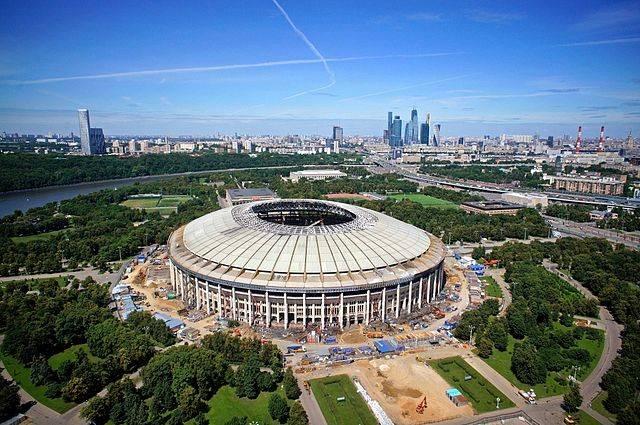
The quadrennial World Cup is the world’s biggest sporting event, far outpacing the Super Bowl and the Olympics. FIFA, football’s global governing body, claimed that the 2014 World Cup in Brazil scored 3.2 billion viewers, with 1 billion watching the final between Germany and Argentina.
The 32-team tournament is typically a global gold mine for FIFA and its sponsors, who spent up to US$50 million to have their brands associated with the event. In 2013, FIFA accumulated $404 million in marketing rights for the Brazil World Cup, which funded almost 30 percent of its revenue that year.
But so far, the World Cup set to kick off in Moscow next year has struggled with signing up sponsors. Some of the usual suspects, including Adidas, Coca-Cola, Visa and Russia’s energy giant Gazprom, are sponsoring next summer’s month-long event.
But as Bloomberg reported this week, one problem is the exorbitant marketing fees FIFA expects from businesses for sponsorship, which are now as high as $150 million. Additionally, the corruption scandal that dogged FIFA for much of 2015 has sullied the sporting body’s reputation. During that year, World Cup-related marketing fees plunged almost 40 percent, down to $246 million.
Resentment against FIFA has simmered for years as more countries are realizing that the press coverage and prestige that arise from hosting the sporting world’s premier event come with a huge cost.
While most analysts lauded FIFA for the 2010 South Africa World Cup -- the first in Africa -- those stadia have become a financial burden and sparked little economic development, save for temporary construction and tourism jobs.
Four years later, Brazil’s enthusiasm for hosting its first World Cup since 1950 dissipated as the country’s plunging economy and declining social services made its role as World Cup host seem frivolous to many citizens. Many of the newly built stadiums across Brazil now sit empty as they are too expensive for local professional football teams to maintain.
The murky circumstances surrounding the surprising 2010 decision to award next year’s World Cup to Russia and the 2022 event to Qatar have also nudged companies to step away from FIFA.
Accusations of corruption reached the point at which rumors suggested both countries would be stripped of their hosting bids. Last year, outgoing FIFA President Sepp Blatter admitted that the decision to hold the 2018 World Cup in Russia was a fait accompli even before the final vote.
Qatar’s hosting of the event also came under attack, and not only for the dubious decision to hold a sporting tournament in a small country with no football tradition and where the mercury can surpass 110 degrees Fahrenheit in the summer. The event has since been moved to November and December despite protests from the European football leagues. Meanwhile, critics described the construction of the stadia in and around Doha, Qatar, as a human rights catastrophe.
Between FIFA’s recent performance and Russia’s overall reputation as one of the most corrupt nations on earth (Transparency International scores Russia 131st out of the 176 nations it surveys), the Switzerland-based sporting association is a brand with which most companies are not in a rush to associate. Memories of the 2014 Winter Olympics in the summer resort of Sochi, a boondoggle that saw its budget soar from $12 billion to $51 billion, offer more reminders of the rampant corruption that defines Russia.
It could take years for FIFA to recover and become a trusted organization again. Holding the 2026 tournament in a country with a rich football tradition (England), or one with a squeaky clean reputation (Canada), or even where new stadia are not necessary (the U.S. or Japan) would be a start. And having the 2030 tournament co-hosted by Argentina and Uruguay, the latter of which hosted the first World Cup in 1930, could prove that at the very least FIFA respects tradition as much as it seeks to extort billions of dollars from countries desperate to hold such an event.
Image credit: Government of Moscow/Wiki Commons

Leon Kaye has written for 3p since 2010 and become executive editor in 2018. His previous work includes writing for the Guardian as well as other online and print publications. In addition, he's worked in sales executive roles within technology and financial research companies, as well as for a public relations firm, for which he consulted with one of the globe’s leading sustainability initiatives. Currently living in Central California, he’s traveled to 70-plus countries and has lived and worked in South Korea, the United Arab Emirates and Uruguay.
Leon’s an alum of Fresno State, the University of Maryland, Baltimore County and the University of Southern California's Marshall Business School. He enjoys traveling abroad as well as exploring California’s Central Coast and the Sierra Nevadas.














